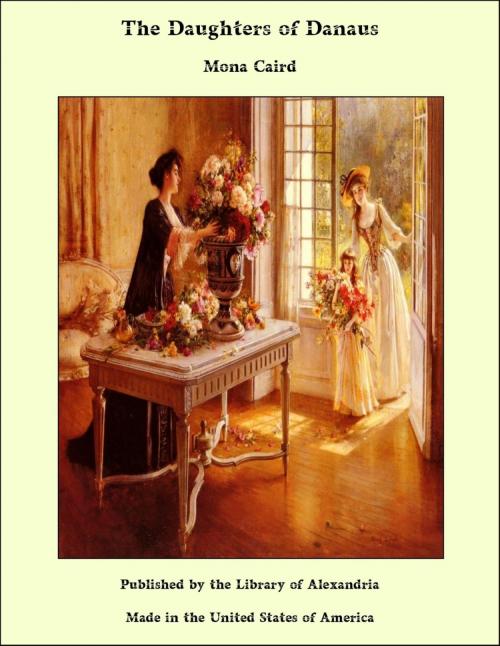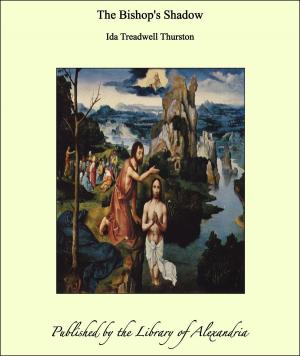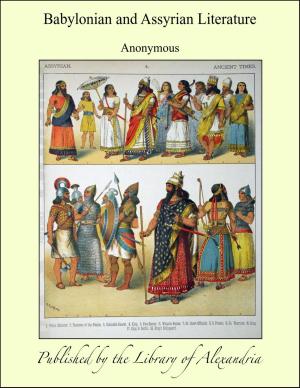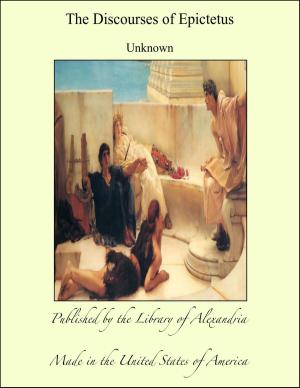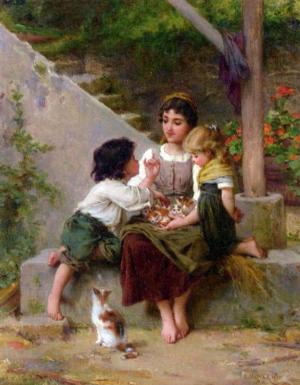| Author: | Mona Caird | ISBN: | 9781465618382 |
| Publisher: | Library of Alexandria | Publication: | March 8, 2015 |
| Imprint: | Language: | English |
| Author: | Mona Caird |
| ISBN: | 9781465618382 |
| Publisher: | Library of Alexandria |
| Publication: | March 8, 2015 |
| Imprint: | |
| Language: | English |
IT was only just light enough to discern the five human forms in the dimness of the garret; the rays of the moon having to find their way through the deep window-embrasures of the keep. Less illumination would have sufficed to disclose the ancient character of the garret, with its low ceiling, and the graduated mouldings of the cornice, giving the effect of a shallow dome. The house stood obviously very high, for one could see from the windows for miles over a bleak country, coldly lit by the rays of the moon, which was almost at the full. Into the half light stole presently the sound of some lively instrument: a reel tune played, as it were, beneath one’s breath, but with all the revel and rollicking emphasis of that intoxicating primitive music. And then in correspondingly low relief, but with no less emphasis, the occupants of this singular ball-room began to dance. One might have fancied them some midnight company of the dead, risen from their graves for this secret revelry, so strange was the appearance of the moving figures, with the moonlight catching, as they passed, the faces or the hands. They danced excellently well, as to the manner born, tripping in and out among the shadows, with occasional stamping, in time to the music, and now and again that wild Celtic shout or cry that sets the nerves athrill. In spite of the whole scene’s being enacted in a low key, it seemed only to gain in intensity from that circumstance, and in fantastic effect. Among the dancers was one who danced with peculiar spirit and brilliancy, and her little cry had a ring and a wildness that never failed to set the others going with new inspiration. She was a slight, dark-haired girl, with a pale, rather mysterious face, and large eyes. Not a word was spoken, and the reel went on for nearly ten minutes. At length the girl with the dark hair gave a final shout, and broke away from the circle. With her desertion the dance flagged, and presently came to an end. The first breaking of the silence gave a slight shock, in spite of the subdued tones of the speaker. “It is no use trying to dance a reel without Hadria,” said a tall youth, evidently her brother, if one might judge from his almost southern colouring and melancholy eyes. In build and feature he resembled the elder sister, Algitha, who had all the characteristics of a fine northern race. “Old Maggie said the other day, that Hadria’s dancing of the reel was no ‘right canny,’” Algitha observed, in the same low tone that all the occupants of the garret instinctively adopted. “Ah!” cried Fred, “old Maggie has always looked upon Hadria as half bewitched since that night when she found her here ‘a wee bit bairn,’ as she says, at this very window, in her nightshirt, standing on tiptoe to see the moonlight.”
IT was only just light enough to discern the five human forms in the dimness of the garret; the rays of the moon having to find their way through the deep window-embrasures of the keep. Less illumination would have sufficed to disclose the ancient character of the garret, with its low ceiling, and the graduated mouldings of the cornice, giving the effect of a shallow dome. The house stood obviously very high, for one could see from the windows for miles over a bleak country, coldly lit by the rays of the moon, which was almost at the full. Into the half light stole presently the sound of some lively instrument: a reel tune played, as it were, beneath one’s breath, but with all the revel and rollicking emphasis of that intoxicating primitive music. And then in correspondingly low relief, but with no less emphasis, the occupants of this singular ball-room began to dance. One might have fancied them some midnight company of the dead, risen from their graves for this secret revelry, so strange was the appearance of the moving figures, with the moonlight catching, as they passed, the faces or the hands. They danced excellently well, as to the manner born, tripping in and out among the shadows, with occasional stamping, in time to the music, and now and again that wild Celtic shout or cry that sets the nerves athrill. In spite of the whole scene’s being enacted in a low key, it seemed only to gain in intensity from that circumstance, and in fantastic effect. Among the dancers was one who danced with peculiar spirit and brilliancy, and her little cry had a ring and a wildness that never failed to set the others going with new inspiration. She was a slight, dark-haired girl, with a pale, rather mysterious face, and large eyes. Not a word was spoken, and the reel went on for nearly ten minutes. At length the girl with the dark hair gave a final shout, and broke away from the circle. With her desertion the dance flagged, and presently came to an end. The first breaking of the silence gave a slight shock, in spite of the subdued tones of the speaker. “It is no use trying to dance a reel without Hadria,” said a tall youth, evidently her brother, if one might judge from his almost southern colouring and melancholy eyes. In build and feature he resembled the elder sister, Algitha, who had all the characteristics of a fine northern race. “Old Maggie said the other day, that Hadria’s dancing of the reel was no ‘right canny,’” Algitha observed, in the same low tone that all the occupants of the garret instinctively adopted. “Ah!” cried Fred, “old Maggie has always looked upon Hadria as half bewitched since that night when she found her here ‘a wee bit bairn,’ as she says, at this very window, in her nightshirt, standing on tiptoe to see the moonlight.”
